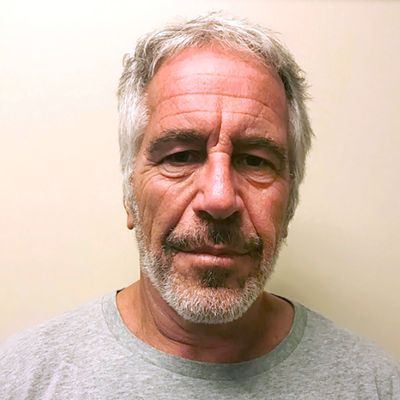
One of the many unknowns surrounding Jeffrey Epstein’s life and death involves the peculiar circumstances of how a college dropout without any real financial bona fides could rack up a fortune worth hundreds of millions of dollars. Seven months after his apparent suicide, new fiscal mysteries are still emerging: According to a court hearing this week, documents presented to a judge in the U.S. Virgin Islands show a series of multimillion-dollar payments transferred from his estate to a bank he owned, Southern Country International, after his death.
In August, Epstein’s bank, used to manage offshore dealings, had a little under $700,000 in assets; in December, the estate transferred in $15.5 million. All the funds, save for $500,000, were withdrawn before the end of the year. “There’s no explanation for it,” said Judge Carolyn Hermon-Purcell, who is responsible for the distribution of Epstein’s remaining assets in the Virgin Islands. Epstein’s lawyers claim that the transfers were an error, though the records were found listed with basic financial payments like cable bills. Hermon-Purcell has ordered the estate to produce further documents explaining the financial irregularities.
Another major oddity was reported this week: Epstein’s bank, Southern Country International, should not have existed due to his criminal history. Still, his 2014 application — in which Epstein sold himself as one of the “pioneers” in investment banking — was approved, becoming one of the U.S. Virgin Islands’ first international banks. Despite license renewals every year up until 2019, the Daily Mail reports that there was “no indication that the bank was operating as a business in the time it was open.”
At the moment, court cases in the U.S. Virgin Islands appear to be the most promising vehicle for uncovering more information about Epstein’s alleged sex-trafficking operation and financial inconsistencies. In addition to the case overseen by Hermon-Purcell that will distribute Epstein’s assets — now estimated to be as much as $634 million — the attorney general of the U.S. Virgin Islands, Denise N. George, filed a lawsuit against the estate, alleging that the financier had trafficked hundreds of victims, potentially as young as 11 years old, to his island of Little St. James, and maintained the operation until as late as 2018.






























